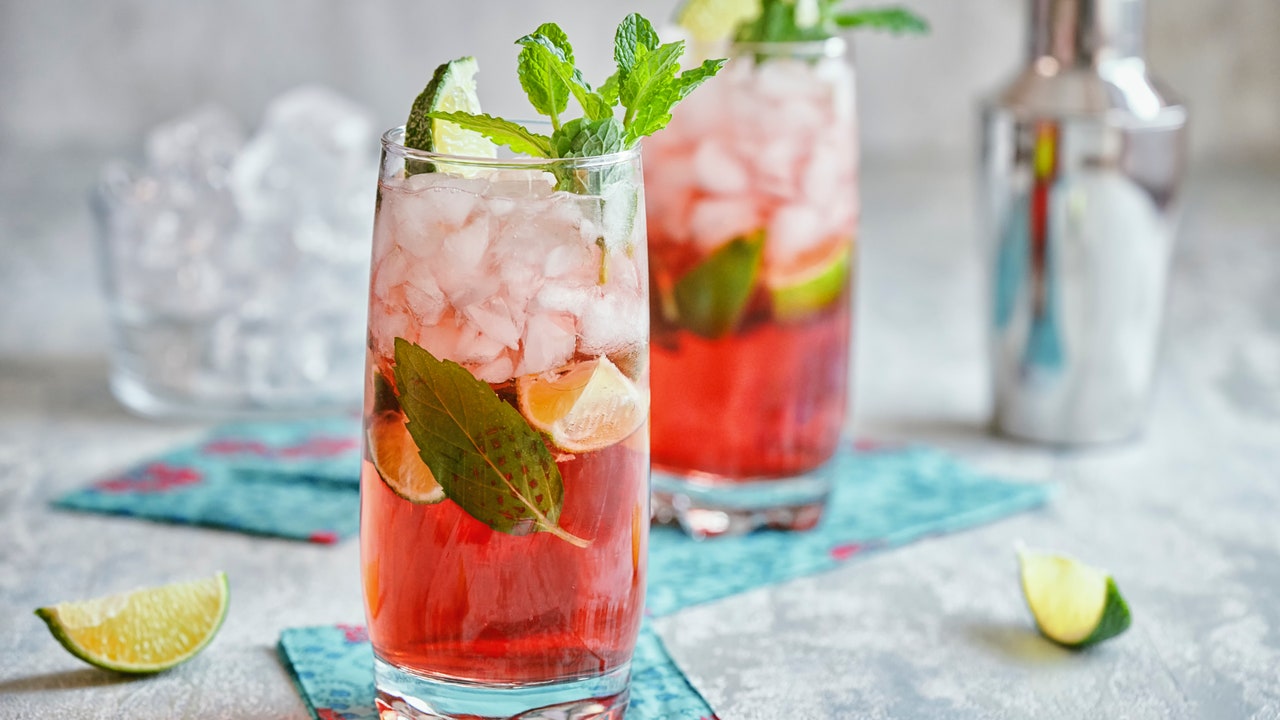Is Kombucha Really Good for You?

[ad_1]
It’s fizzy, it’s fermented, it’s funky—but is kombucha good for you? While some people swear by kombucha as a miracle health drink, it turns out kombucha isn’t’ always good for you. “Kombucha is often advertised as a good source of probiotic bacteria, which is important for maintaining a healthy gut and immune system. However, the amount and diversity of these organisms present in the bottled beverage can vary widely, depending on the brand and production method,” says Alyssa Pike, RD, Nutrition Communications Manager at the International Food Information Council.
Kombucha has a long history—it’s estimated to have originated in China between 200 BC and 300 BC. But despite its ancient origins, the health benefits have not been widely studied. “Direct evidence supporting kombucha’s benefits for human health is lacking,” says Pike.
Regardless, it feels like promises of kombucha benefits are everywhere these days. Over the past decade, it’s become the fastest-growing product in the functional beverage market (functional beverages being sports drinks, energy drinks, fortified juice, and dairy alternative drinks). Globally, the kombucha market is set to reach $10.45 billion by 2027.
So, is kombucha healthy and what exactly is all the buzz about? We asked the experts for the tea.
What is kombucha?
Saying kombucha is simply ‘tea’ would be an understatement. Kombucha (kom-BOO-cha) is a fermented black or green tea drink containing a culture of yeast and acetic acid bacteria, or tea fungus. But don’t let that cheeky word put you off. That juicy portobello mushroom burger? Fungus. That creamy and indulgent truffle mac ‘n’ cheese? Yep, fungus. Adaptogenic protein powder? Fungus. The stuff can be packed with benefits.
Making kombucha is a process, and it requires patience. The black or green tea (or sometimes a combination of both) is fermented with sugar, yeast, and a SCOBY in aerobic conditions for 7-10 days. “The SCOBY is Symbiotic Culture Of Bacteria and Yeast, so a biofilm of microorganisms resembling a mushroom cap. This becomes a starter for subsequent brews. The SCOBY comprises various acetic acid bacteria. Several lactic acid bacteria have also been isolated,” says Pike. The longer the kombucha is left to brew, the more vinegary it becomes.
Is kombucha alcoholic?
You might have heard whispers that kombucha is alcoholic. Technically it is. Homebrewed varieties typically contain more alcohol as the bacterial growth has not been monitored as closely as in commercial manufacturing. Even still, commercial varieties of kombucha do contain less than 0.5% alcohol. “The SCOBY responsible for the fermentation process breaks down the sugar into carbon dioxide and alcohol, then bacteria convert the alcohol into acetic acid, giving the beverage its vinegary tartness. Not all of the alcohol is used by the bacteria, so kombucha does contain trace amounts of alcohol but not enough to be labeled as an alcoholic beverage,” explains Pike.
In recent years, beverage companies have developed specifically alcohol-enhanced kombucha, which is entirely different from regular kombucha. This has attracted even more drinkers or people who are seeking healthier alternatives to sugary tonics and sodas to pair with their favorite spirits.
Kombucha benefits
Kombucha is an acquired taste, but if you’re a fan, you’ll appreciate its unique, effervescent, and refreshing flavor. The fermented drink has also surged in popularity because of its reported health benefits, some of which are not scientifically proven. Despite this, there’s no denying that kombucha is a low-sugar alternative to other fizzy drinks. Though it helps to be aware that many commercial, branded versions of kombucha tend to add more sugar to make the flavors more palatable than the traditional version of kombucha.
[ad_2]
Source link